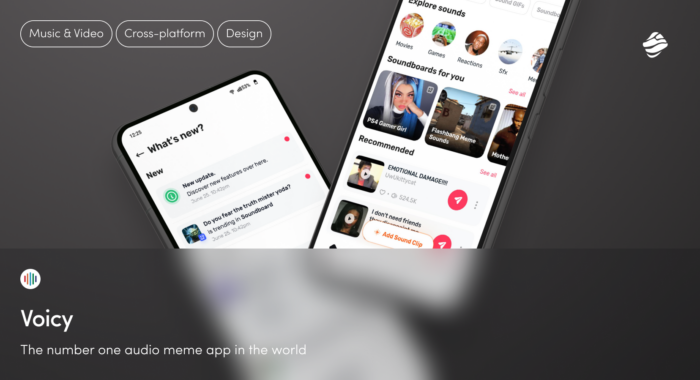As technology evolves, demand for software programmers and IT engineers increases. Finding experts with the required skills and expertise for your project takes time and money. These are two resources some businesses may lack on their way to scaling up.
Fortunately, IT outsourcing optimizes both, allowing businesses to meet demand and focus on growth strategies. 57% of the top 2000 companies outsource IT services.
There are two prevalent approaches: staff augmentation vs dedicated team outsourcing. This article explores the key differences, benefits, and challenges of both. The goal is to help you choose the right workforce for your software development projects.
What is staff augmentation?
Staff augmentation involves hiring specialized talent temporarily or project-based to supplement your existing team. For example, a bank may hire a user experience designer to revamp its digital channels (website and mobile app) and let them go once that is done.
Augmented staff typically have skills your in-house team doesn’t possess. These may include business analysis, project management, specific language programming, UX/UI design, and quality assurance. In the earlier example, you will hire the UX designer to supplement the skills of your in-house development team.
The goal of staff augmentation is to ensure a well-rounded project team. Therefore, you should thoroughly analyze your workforce’s capabilities to identify skills gaps.
Once hired, augmented employees integrate into your workflows and processes, working closely with internal staff. You retain control and authority over the project while leveraging their specialized expertise.
Advantages of staff augmentation
The key benefit of this outsourcing model is flexibility. You can scale your workforce as needed without the lengthy and costly commitments associated with recruitment. The service provider handles all the HR processes except onboarding.
Other advantages are quick access to experts and knowledge transfer.
Disadvantages of staff augmentation
A drawback of the staff augmentation model is the potential for value misalignment. Augmented staff don’t have the same commitment or culture buy-in as your internal team. That could lead to integration and cohesion challenges.
Other disadvantages are unpredictable costs and dependency risk.
What is a dedicated team model?
The dedicated team model involves outsourcing entire software projects to external teams. For example, a university may outsource the custom software development of its library management system, allowing the in-house team to focus on other systems.
Dedicated teams offer diverse and comprehensive skill sets that allow businesses to meet the project’s needs. These include a project manager, programmers, UX/UI designers, quality assurance specialists, and more.
While you retain oversight and high-level project management, dedicated teams operate independently and use their methodologies and processes.
Advantages of a dedicated team model
The key benefit of this outsourcing model is commitment. Dedicated teams work on your project exclusively, increasing efficiency, productivity, and time-to-market.
Other advantages are cost predictability and scalability.
Disadvantages of a dedicated team model
Communication and cultural barriers are one of the most significant disadvantages of the dedicated team model. Dedicated team members work remotely. Miscommunication and cultural differences can affect product development, which can result in project delays, costly reworks, or poor-quality products.
Other drawbacks are reduced oversight and dependency risk.
When to choose staff augmentation
Below are scenarios where staff augmentation is beneficial:
- Short-term projects: you need specialized skills for a limited period.
- Budget constraints: you can’t afford a full-time hire.
- Tight deadlines: helps meet deliverables without overworking in-house teams.
- Team shortages: covers sudden exits or leave of absence.
- Peak project phases: support the internal team during workload spikes.
The pros and cons of staff augmentation make it an effective strategy when you want to expand your capabilities without making long-term commitments. It is a great solution to meet temporary or immediate needs.
When to opt for a dedicated team
Here are situations where dedicated teams are ideal:
- Long-term projects: to manage ongoing or continuous development.
- Complex projects: to access varied, specialized skills or technologies not available in your in-house team.
- Multiple projects: to tackle several development projects simultaneously.
Dedicated teams are an ideal way to scale your business without overwhelming your employees. They are extensions of your workforce and help you meet long-term needs without permanently hiring workers.
Comparing cost implications of staff augmentation vs dedicated teams
Three main factors influence the cost of team augmentation services:
- Level of skill – the more experience and specialized skills needed, the higher the cost.
- Project length – long-term contracts offer more stable rates than short-term ones.
- Geographic location – regions with high cost of living command higher rates.
Note that there are also agency fees that cover overhead costs, employee development, and training.
The financial implications look different depending on the model you choose.
Staff augmentation
This model uses the time/material pricing model, which allows you to pay for time spent on the project. Costs vary depending on the number of employees and duration of involvement.
Though you have flexibility in managing expenses, this model can get expensive with hidden or unexpected expenses from project delays or changing requirements.
Dedicated teams
The dedicated team model follows the fixed price model, where you pay a set fee. Costs are consistent, with pricing based on team size and contract length.
Upfront costs are higher because they include office space, software licenses, hardware, etc. However, this model becomes cost-effective for long-term projects with evolving requirements.
Flexibility and scalability
Both staff augmentation and dedicated team models offer flexibility and scalability but differ in the degree and method. Check this out.
Staff augmentation: You can quickly scale the volume of staff based on the project’s needs. For instance, you hire programmers for peak project phases only. You can also add experts with the specific skills you need to meet changing project requirements.
Dedicated teams: Given its fixed cost and terms, you can’t easily scale up or down the number of employees. If you adjust the team’s composition, you may need to renegotiate your contract. However, you can quickly change project requirements to meet emerging trends or user needs.
In short, staff augmentation enables rapid scalability, while dedicated teams provide more flexibility.
Control and management of teams
A key difference between staff augmentation vs project outsourcing to dedicated teams is team management and project responsibility.
Staff augmentation: You maintain full control of the project, ensuring the project’s quality. Augmented staff work under your direct supervision. Consequently, you’re responsible for familiarizing them with your systems and processes.
Dedicated teams: You maintain control of the project’s vision, priorities, and high-level decision-making. However, the external team manages the day-to-day operations and processes independently. The reduced oversight requires more coordination and integration effort to ensure project quality.
Your organization’s risk tolerance and ability to manage external resources will determine the model that applies to your situation.
Communication and collaboration dynamics
Working with external staff can affect your company’s culture, especially in remote or hybrid environments.
Staff augmentation: Internal and external teams work closely (sometimes on-premises). Collaboration, knowledge sharing, and integration are easier as they adopt the organization’s practices.
However, one of the challenges of staff augmentation is these workers don’t identify as your employees. They will move on to other projects or organizations, and that can lead to friction.
Dedicated teams: These external staff work independently and remotely. Time zones, language, and technological differences can affect collaboration and communication.
One way to overcome these issues is by establishing effective communication channels and collaboration protocols. You can also choose a team that matches your values and corporate culture.
Impact on product quality and consistency
Quality assurance is vital for projects with strict standards and regulatory requirements.
Choosing between staff augmentation and a dedicated team has implications for the quality and consistency of your project.
Staff augmentation: You have more control over the project and can directly ensure product quality. At the same time, a revolving door of temporary staff can undermine the consistency of that quality.
Moreover, augmented employees don’t have insight into your other products and how they fit into your brand identity. That can affect the quality and consistency of the product they work on.
Dedicated teams: You have less oversight of the project here. That means you must clearly define project objectives and the scope of work to ensure product quality. The long-term commitment of this model also supports brand consistency.
A continued relationship with dedicated team members can create a deep understanding of your brand. This can create opportunities for innovations that can give you a competitive edge.
Staff augmentation vs dedicated team case studies
Here are real-world examples of companies that successfully implemented staff augmentation and dedicated team strategies:
GOmobile

GOmobile is a mobile banking application for BNP Paribas, a multinational universal bank offering global financial solutions in 63 countries.
Challenge: The bank’s Polish subsidiary recognized the growth opportunities presented by fintech. However, it faced difficulties accelerating the time-to-market of new mobile app features.
Solution: The bank needed a software team with Android and iOS app development experience to help the internal development team expand development competencies and release new features quickly.
Outcome: The bank partnered with Miquido to develop essential finance modules, such as account access, transaction history, and integration with mobile payment systems. We provided native Android and iOS development support and introduced biometric authentication functionalities, improving app security and customer satisfaction.
The app has over a million downloads with an average rating of 4.8.
Voicy

Voicy is an audio meme application that allows users to discover, create, and share sound memes.
Challenge: Originally a web-based platform, Voicy struggled to attract new audiences in a mobile-first era.
Solution: Voicy needed to develop mobile apps to reach Android and iOS users.
Outcome: The company outsourced app development to Miquido. Using cross-platform development, we delivered high-quality, native-like Android and iOS apps in half the time it would take to use native development. That enabled Voicy to reach 77,000 new users.
The app has a 4.5 rating and an 85% engagement rate, amassing 200 million plays and 50 million shares.
In closing: Dedicated team vs staff augmentation
When deciding between staff augmentation vs dedicated team outsourcing, the choice comes down to your project scope, available resources, and strategic goals. Each offers unique advantages and challenges. Understanding these is key to choosing the right option for your business.
Staff augmentation gives you more flexibility and control over your project. The pricing structure and collaboration dynamics make it suited for short-term projects.
Meanwhile, the dedicated team model is a more hands-off approach, allowing you to focus on strategy. The pricing structure and comprehensive skill set make it ideal for long-term projects with evolving requirements.
At Miquido, we offer augmented and dedicated team services. We have a proven track record of helping businesses meet their software development needs, having worked on over 250 digital solutions. Get in touch with us today to see how our experts can support your in-house team.





![[header] how is ai used in the music industry overcoming trust, fraud & transparency challenges with ai](https://www.miquido.com/wp-content/uploads/2025/04/header-how-is-ai-used-in-the-music-industry_-overcoming-trust-fraud-transparency-challenges-with-ai-432x288.jpg)

![[header] benefits of competitive analysis in your business strategy](https://www.miquido.com/wp-content/uploads/2025/04/header-benefits-of-competitive-analysis-in-your-business-strategy-432x288.jpg)

![[header] software nearshoring to poland – an ultimate guide](https://www.miquido.com/wp-content/uploads/2025/03/header-software-nearshoring-to-poland-–-an-ultimate-guide-432x288.jpg)